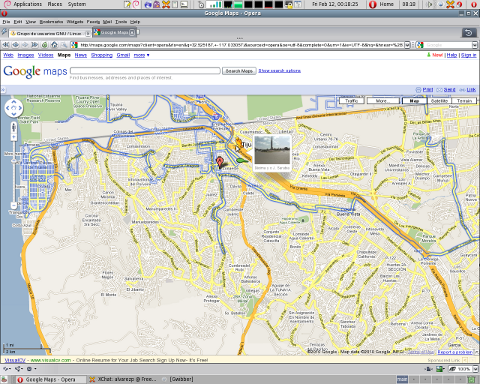Por azares del destino encontré que Google ya tiene una pizca de Tijuana lista en el Street View de Google Maps.
Al parecer alguien vio el carro en junio de 2009, se la pasó a algún amigo y éste lo blogueó! :-O
Actualización 1: La mejor foto que publicaron los de tijuanayo.com es la del vehículo de Google siendo cuestionado por la policía.
Actualización 2: También en tijuanayo.com observaron que ya está en línea e hicieron un post al respecto.
Grandioso ¿no? Ojalá pronto podamos tener el resto de los servicios. Particularmente, saber cómo llegar de A a B con optimizaciones, como en San Diego, pero específicas a la localidad. Estas son las optimizaciones que me imagino en Google Maps para Tijuana:
- Usar sólo transporte público
- Usar sólo automóvil
- Evitar boulevares y aprovechar vías rápidas
- Evitar tráfico (en tiempo real)
- Evitar baches y charcos (en tiempo real)
- Evitar balaceras (en tiempo real)
- Parar por una gasolinera non-rata (en tiempo real?)
- Evitar el tren (en tiempo real)
🙂


